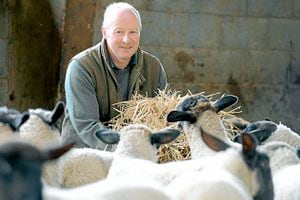Train British workers, Patel tells businesses
The Home Secretary has told businesses to train more British workers amid concerns over new immigration rules.

Business and farming leaders in Shropshire have warned that the points-based system could make it harder to find people to keep businesses running.
But Priti Patel said industries relying on a migrant workforce should look closer to home when recruiting new employees.
“We have over eight million people – that is 20 per cent of the workforce – aged between 16 and 64 that are economically inactive right now,” she said.
“It is down to businesses to work well with the Government and join us in investing in people, levelling up across the UK so we can have wage growth across the entire country.”
The Cabinet minister said it was “ridiculous” to suggest the Home Office was putting the brakes entirely on businesses recruiting from abroad.
Richard Sheehan, chief executive of Shropshire Chamber of Commerce, said: “Clearly something of this nature will have greater impacts on some sectors more than others like tourism, leisure and hospitality, health and agriculture.
“This is particularly concerning at a time where some businesses are already struggling to recruit.”
Shropshire farmer and NFU regional board chairman Malcolm Roberts said he had serious concerns about the Government’s failure to recognise British food and farming’s needs and the proposed immigration policy needed to deliver for the industry.
Vital
“The NFU has said repeatedly that Shropshire farmers and the wider supply chain needs more permanent people – from pickers and packers to meat processors and vets – if we are to continue to deliver high quality, affordable food for the public,” he said.
“We continue to have low unemployment and our farms do employ British people as well as those from overseas, but failure to provide an entry route for these jobs will severely impact the farming sector.
“Automation will have a vital role to play and we fully support investment in this area, but it is not yet a viable option to replace the number of people we need and farmers will need a practical solution in the meantime. There are also some jobs that simply cannot be replaced by technology.
“Seasonal work is different and a separate labour issue, although the expansion of the Seasonal Workers Scheme is very welcome and the NFU had a strong voice in discussions to bring in the pilot scheme and to then push for its extension.
“The announcement that it will increase to 10,000 from 2,500 will ease some of the pressure for the coming season but Shropshire growers still remain very concerned about how they will recruit vitally important seasonal workers.”
Ms Patel said workers could come to the UK as long as they were sponsored by an employer and met the points-based criteria, including earning at least £25,600 in skilled professions, as part of changes that will come into force next year.
The Confederation of British Industry warned that care, construction, hospitality and food and drink companies could be most affected by the changes, and Macmillan Cancer Support called for a “separate migration route” for social care workers to ensure cancer patients continue to access support.





